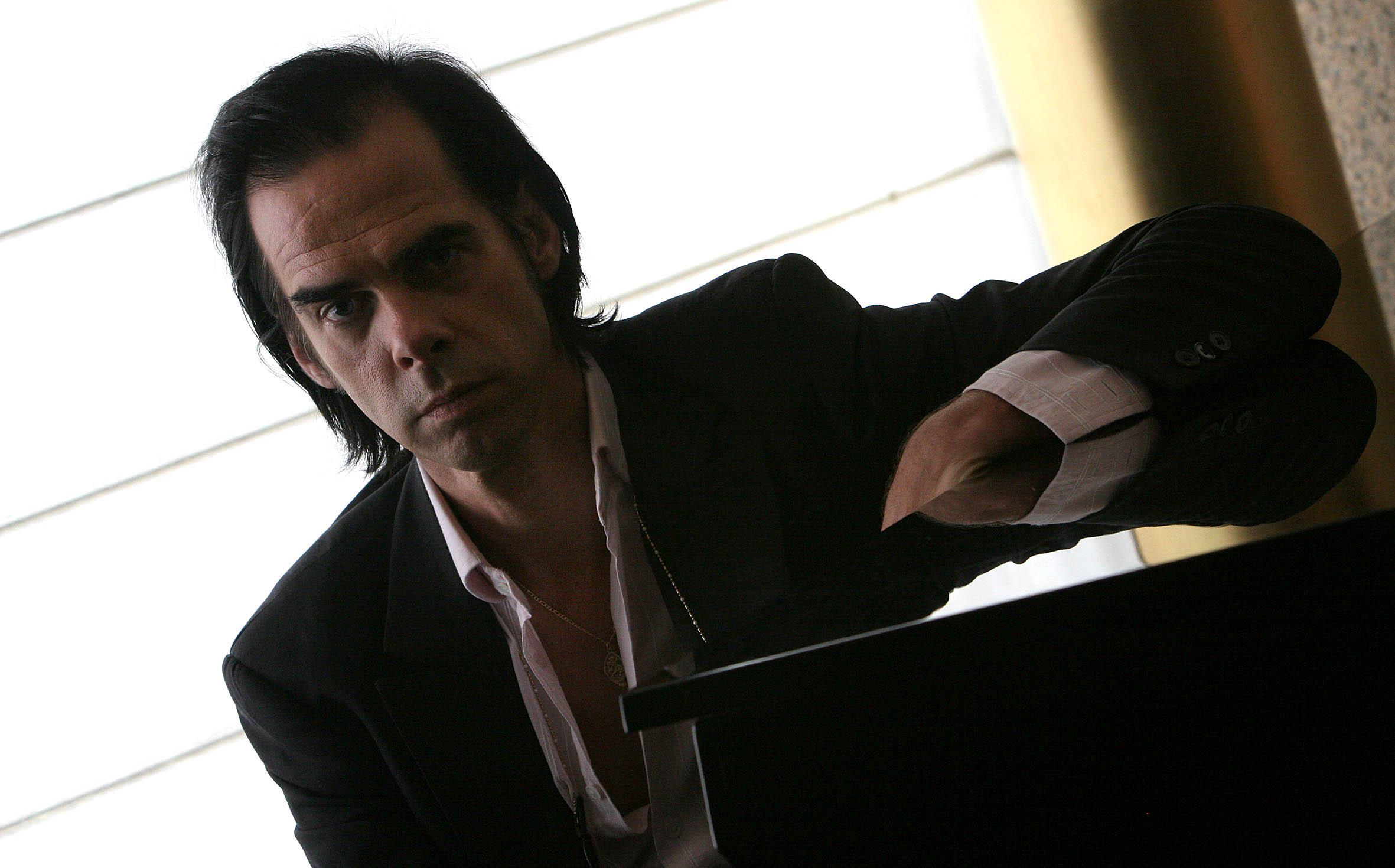A floating electronic sound in the shape of electromagnetic waves enveloped the Palau Sant Jordi like a quilt. After Nick Cave played a small melody on the piano, in the center of the stage, he began to sing. It was a litany with a blues structure and the intention of a church song. "This morning I woke up with the blues swirling in my head," he sang. He separated his arms from the keyboard and sang the verse again, moving his hands towards the audience as if delivering his message to everyone, a gesture he repeated throughout the concert. "I felt like someone in my family had died," he added, and the thousands of people gathered there knew that it was not a dream.
"I jumped like a rabbit and fell to my knees, and said: have mercy on me," sang Nick Cave under the protective quilt that extended over the heads of the people, no instrument marking the rhythm, just a sound to immerse in while his arms continued moving and emphasizing every word of the song Joy. In it, a ghost appears next to the protagonist's bed. "We've had too much sadness, it's time for joy," Nick Cave sang, and finally the choir entered, a gospel choir of four singers in robes positioned behind him.
The Bad Seeds are rigorous, highly creative, and versatile musicians, capable of hitting with an iron mallet or being cunningly subtle. They are multi-instrumentalists so good that it's like having two bands. But the choir was very important in Thursday night's concert: it supported the Australian artist in each of the songs of his musical journey through blues, gospel, ambient electronica, and rock.
Throughout history, all cultures have experienced the pleasure of singing together with others and the sense of connection it brings. A choir symbolizes the unity of people, understanding, support, and collaboration, as well as the collective enjoyment of working with others towards a greater common good.
Nick Cave during his concert at Palau Sant Jordi in BarcelonaGorka LoinazAraba
That's what a smiling, talkative, and powerful Nick Cave came to do, to sing with others with the microphone volume turned up high and the vibrant baritone, to share his new songs and also some old ones.
Last night in Barcelona, he asked the audience (the Palau Sant Jordi far from full) to sing along with him in O Children, a song about "protecting the children" that has "haunted him all his life," he said. And after spending his extraordinary performance encouraging people's participation, he ended up asking everyone to join in his most glorious chorus, that of Into My Arms, one of those miraculous songs that seem to have been created a thousand years ago and passed down through generations. Singing together to extinguish pain like ripples on the water's surface, and thus reach joy.
Joy was the name he thought of giving to his new album, but in the end, he opted for Ghosteen, which is the name of another of his songs. Ghosteen is a celebratory album and a fabulous artistic triumph with sophisticated compositions, captivating music, and lyrics about connection sung in a fervor, intertwining reality and fiction with great emotion. It is a significant album in the discography of the Australian rocker, who experienced a personal cataclysm when one of his teenage sons died in 2015 after falling off a cliff. Since then, that tragedy has been the prism through which to view his albums and performances.
Joy was a moment of intimacy in a concert of high emotional intensity. If Nick Cave and the Bad Seeds have been known for achieving suffocating tension live with high levels of skill and precision, they now reach catharsis without resorting much to the dramatic epic that distinguished them in the past. Conflict and suffering are present, but the concert uses artistic expression to reach a collective communion.
In his desire to establish a direct connection with the audience, the stage extended beyond the security pit with a horizontal catwalk as wide as the stage itself and elevated about a meter and a half. There, the charismatic singer spent half of the performance, walking back and forth on that catwalk, without any distance from the people, continuously holding their hands and singing with them. His suit and tie outfit seemed to be made of the stretchy fabric of sportswear, as he subjected his lean body to a session of kicks, arm movements, jumps, and shakes, all while being filled with a surge of energy.
The concert began with four songs from his new album, making it clear that it was not going to be a ceremony to celebrate the old legacy. He performed his eighteenth album almost in its entirety, along with three other pieces created in recent years: Bright Horses, Carnage, and White Elephant. At times, his veteran fans (everyone) found the surprise of an unavoidable classic like Red Right Hand (powerful, memorable) or The Weeping Song, but it was not a night for nostalgia.
With 67 well-hidden years under his half-black mane (Just for Men, L'Oréal?), Nick Cave is no longer the wild young man in search of a prophecy or the mature prince of darkness. He has made a fantastic album and seems focused and resolved: he worked on his new songs with the dedication of a medieval monk and now defends them with the commitment of a temple guardian dog.
Since starting this tour a month ago, every night he plays the same songs in the same order in long performances that can last six or seven minutes. If in Barcelona someone felt like they were attending a 150-minute liturgy, spellbound by his mastery of performance, it was undoubtedly a ritual of joy.
